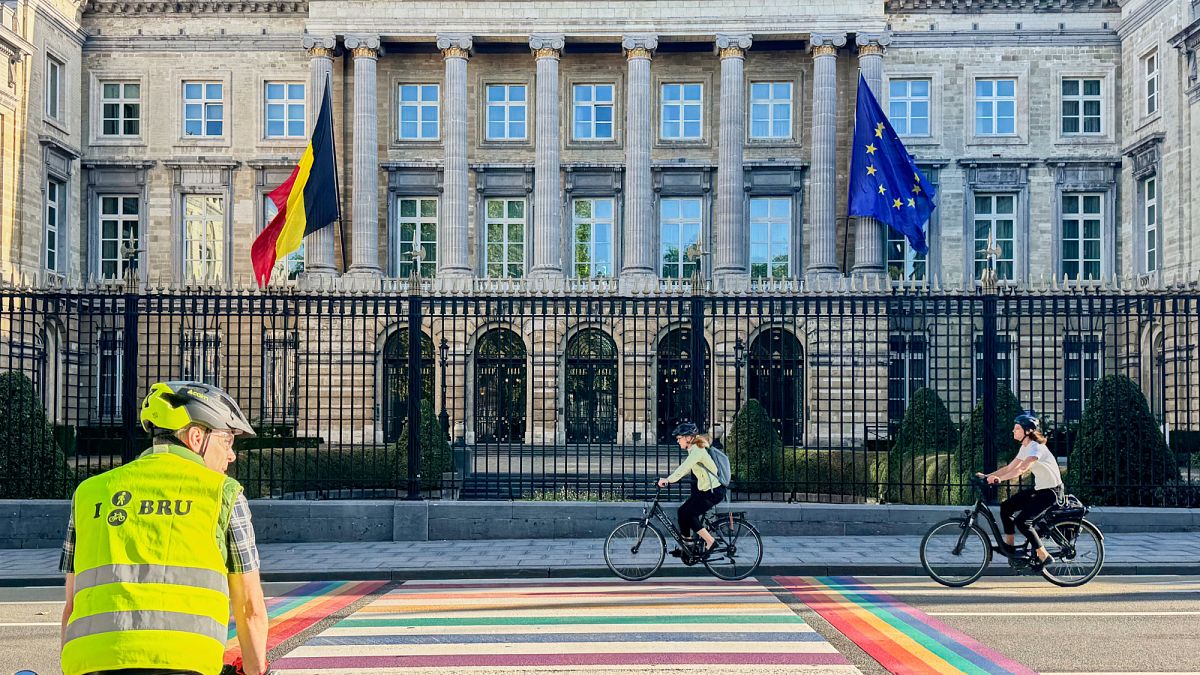

In a world that often feels tumultuous, recent events across the globe underscore a range of complex political and social issues. These unfolding stories, from Europe to the far reaches of East Asia, paint a portrait of changing dynamics and persistent challenges that continue to shape our global landscape.
In Belgium, a potentially hazardous incident outside the Israeli embassy was calmly diffused by local authorities. A suspect carrying a Molotov cocktail was apprehended, with officials assuring that all embassy staff were safe and unharmed. This incident highlights the ongoing vigilance required to maintain security at diplomatic sites worldwide. Belgium’s quick response assures its commitment to both the safety of diplomatic personnel and the wider public.
Meanwhile, in France, a sense of political instability looms, with profound implications for the European Union. The potential downfall of the French government could weaken its influence and presence on the European stage. As the EU grapples with challenges like post-pandemic recovery and geopolitical tensions, the stability of its leading nations is crucial. The situation calls for mindful engagement from both French and EU leaders to navigate this period with resilience and foresight.
Adding to the complexity of France’s political climate are controversial revelations regarding President Emmanuel Macron’s government. A satirical newspaper stirred discussion with claims that the government is secretly preparing for a military conflict in 2026. While many view these claims with skepticism, they contribute to ongoing debates about transparency and trust in government—a universal consideration for nations across the globe.
Meanwhile, in Eastern Europe, Russian President Vladimir Putin’s recent statements again draw international attention, particularly regarding the conflict in Ukraine. Putin outlined that foreign troops on Ukrainian soil would be considered legitimate military targets. He further expressed Russia’s unyielding opposition to Ukraine’s potential NATO membership, highlighting the persistent hurdles in achieving diplomatic resolutions in the region. These declarations, while stern, form part of the ongoing dialogue regarding regional security and sovereignty.
Across the Pacific, a previously undisclosed operation has come to light involving US Navy Seals in North Korea in 2019. A report revealed that a covert mission authorized during President Donald Trump’s tenure ended with the unfortunate loss of North Korean civilian lives. Such revelations remind us of the delicate nature of diplomacy and military operations, emphasizing the need to uphold ethical standards and accountability even amidst high-stakes interactions with nuclear-armed states.
Closer to Australian shores, social tensions have manifested in the form of organized rallies, highlighting persistent extremist issues. The steps of Victoria’s parliament were once again the stage for neo-Nazi demonstrations, prompting discussions on the role and adequacy of current protest laws. While there are calls for more stringent regulations, authorities indicate that existing laws grant sufficient power to address such gatherings. This situation invites a broader reflection on how societies confront hate and maintain public order while respecting civil liberties.
These stories collectively illuminate the complex tapestry of current global affairs—where issues of security, governance, and societal cohesion intertwine. As these events unfold, they offer an opportunity for reflection and a reminder of the importance of measured actions and clear communication in addressing the challenges of our time. Through mindful engagement and collaborative efforts, it is possible to foster a future that balances security with compassion, and stability with innovation.
Source: {link}
